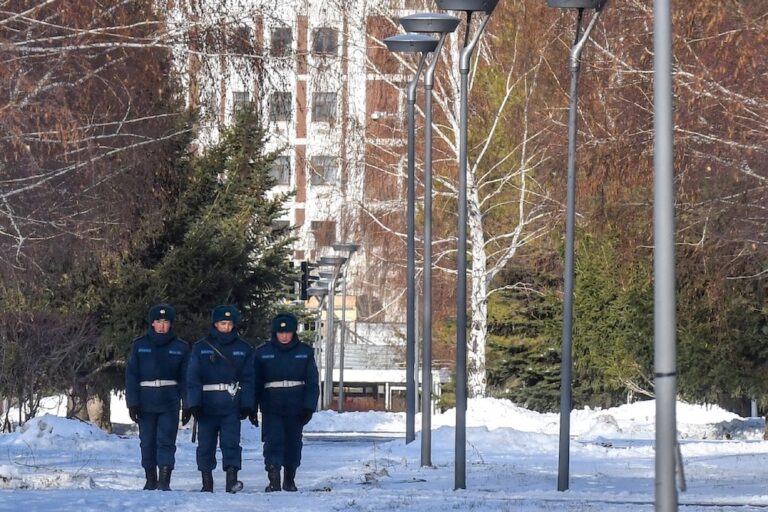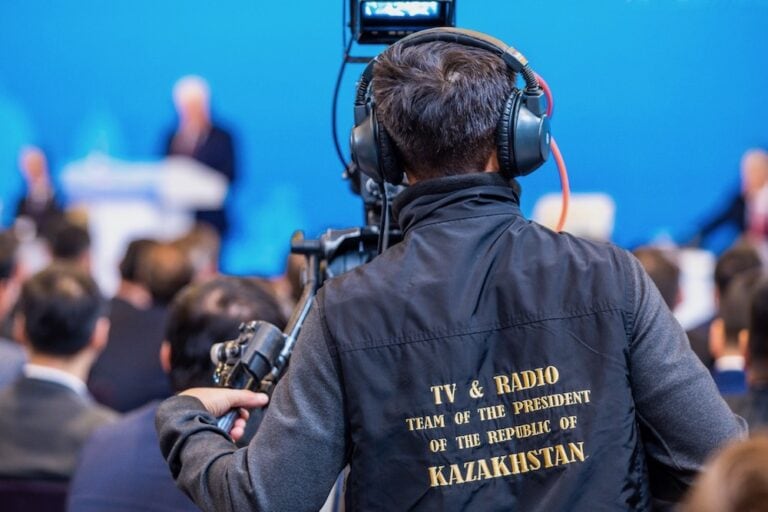(Adil Soz/IFEX) – The following is a 19 April 2006 Adil Soz capsule report: The International Foundation for Protection of Freedom of Speech, Adil Soz, is alarmed by the general trend in media legislation in Kazakhstan. An analysis demonstrates that Kazakhstan has the strictest media legislation in the Commonwealth of Independent States (CIS). Many of […]
(Adil Soz/IFEX) – The following is a 19 April 2006 Adil Soz capsule report:
The International Foundation for Protection of Freedom of Speech, Adil Soz, is alarmed by the general trend in media legislation in Kazakhstan. An analysis demonstrates that Kazakhstan has the strictest media legislation in the Commonwealth of Independent States (CIS).
Many of the provisions set out under this legislation are in conflict not only with international documents adopted by Kazakhstan, but also with its own Constitution. While the higher officials declare their commitment to democracy and freedom of expression, changes to operating laws impose new restrictions.
In January 2006, a list of new offences and sanctions was included in the Code of Administrative Offence, under directives related to the press and information.
As well, in January 2006, several amendments were made to the law “On Mass Media.” Five more articles were included in the law, which aimed at tightening state control over local media outlets. As a consequence, the Culture and Information Ministry and local executive bodies were finally transformed into supervising bodies with total control over the media. Under this legislation they are mandated to:
– ensure that the state policy in the media sphere is implemented regardless of the type of ownership and funding sources of the media outlets;
– license electronic media outlets, set licensing rules and enforce them;
– regulate and enforce media outlets’ observation of media related laws
Considering the fact that the aforementioned amendments bring new types of inspections – both scheduled and unscheduled – the executive power, in fact, has been given unlimited powers to repress the media.
The controlling bodies often have no relevant education and experience, which will probably cause increasing unjustified persecution cases. In April, two newspapers, “Aina plus” and “Alma-ata info”, received a three-month suspension for having changed their thematic focus, following the lawsuit filed by the Almaty Akimat’s Internal Politics Department. The department has sent a similar warning to another newspaper, “Gorod 326.”
This suggests that registering the thematic direction of a media outlet is little more than a form of hidden censorship, since recently such charges have been more frequently used to close dissident newspapers. The Almaty City Akimat’s Internal Politics Department filed administrative charges against the company that owns “Pravo.Ekonomika.Politika.Kultura” newspaper for failing to reregister prior to publication, though the real violator was the Ministry of Culture and Information, which had broken the registration rules.
The new media law, other legal acts and draft laws that have been proposed by local NGOs would radically change the situation. However, the Information Ministry has continually ignored these propositions. Furthermore, the new Minister began speaking out for the new extended registration rules for media outlets.
Adil Soz believes that the deteriorating situation for freedom of expression in Kazakhstan is reason for serious concern. The only way to resolve the crisis and bring Kazakhstan closer to the chairmanship of the OSCE is to adopt a truly democratic system of information law.


